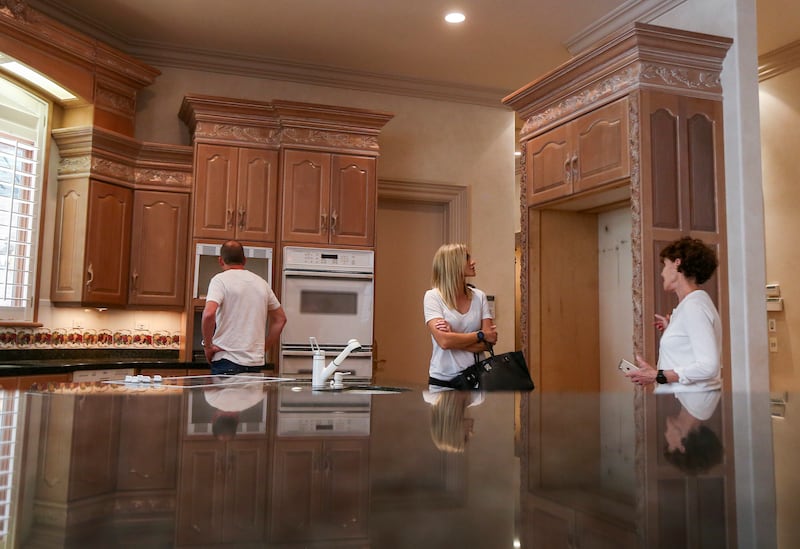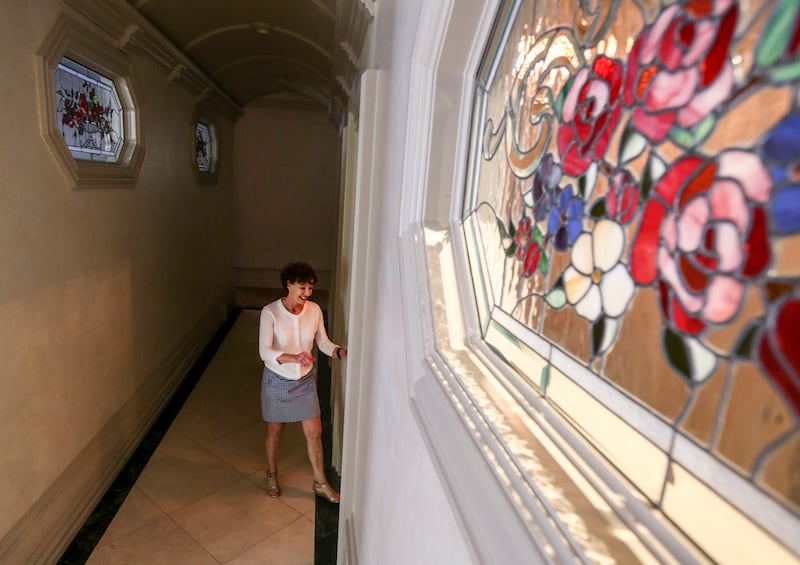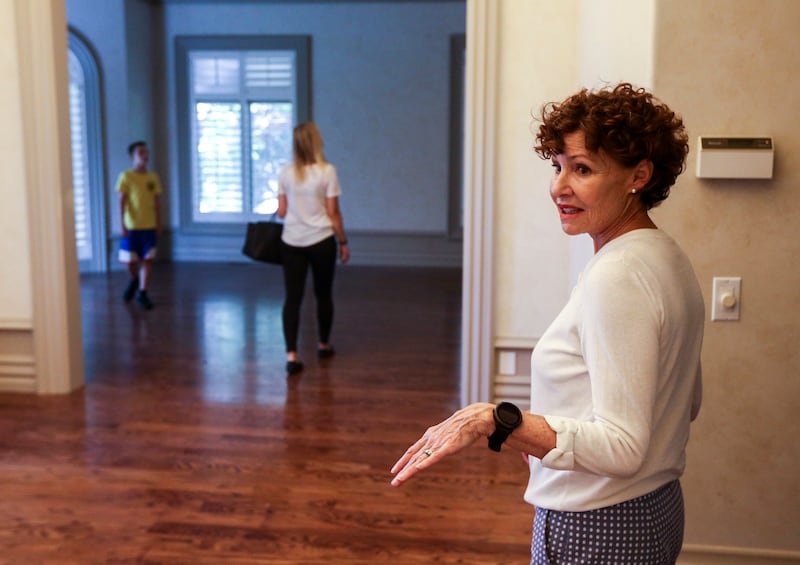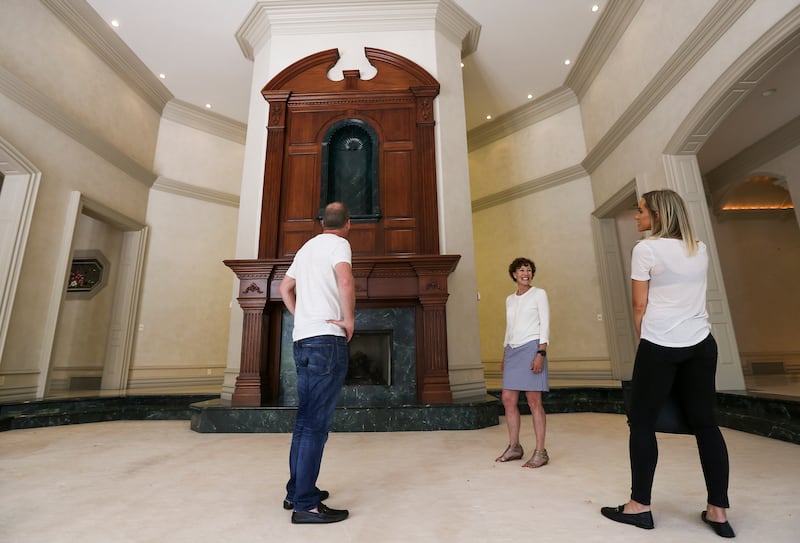SALT LAKE CITY — In a nation increasingly worried about privacy, Utah guarantees its citizens a courtesy that most other states don’t: the right to keep the selling price of a home a secret.
And it’s not alone.
Texas, Alaska, Missouri, Louisiana and Mississippi, in addition to Utah and Idaho, are considered non-disclosure states, potentially costing those states millions of dollars in property taxes and giving players in the real estate market a monopoly on information.
The rules vary from state to state, but in Utah when a home changes hands, only real-estate agents and lenders know the final price, along with the seller and buyer. That means local governments, national real-estate websites and gossipy neighbors don’t.
The longstanding practice is an anomaly in a society where there are few secrets anymore.
It’s also costing the state money, according to a recent state audit that says Utah’s homes were undervalued by about $3.8 billion in 2016 because the state doesn’t mandate reporting.
That 2018 audit of the Utah State Tax Commission recommended that Utah pass a law requiring disclosure, an idea opposed by the Utah Association of Realtors and many individual brokers and agents.

“In my opinion, what I pay for a house is nobody’s business,” said Rob Aubrey, owner and principal broker of Aubrey and Associates Realty in Salt Lake City.
Aubrey and others in the real-estate business in Utah say disclosure is an invitation to new and higher taxes. In much of the nation, however, people are accustomed to having this information made public, and some say nondisclosure states are stuck in the past.
”The old Yankee days of ‘none of our business’ kind of passed us. I’m a big advocate for transparency,” said Christopher Fountain, a Realtor in Connecticut who writes a real-estate blog that gives price histories of homes that are for sale.
Others who oppose Utah’s policy include the online real-estate giant Zillow Group, whose signature website, Zillow.com, shows price histories of homes in disclosure states.
But change in Utah and other nondisclosure states will not come easily, if it comes at all, analysts say. Here’s why, and why the topic is so controversial among people who deal in real estate.
Where prices are public
Fountain, an attorney who now deals in real estate full time, works in Greenwich, Connecticut, a suburb of New York City, where the median home price is $1.8 million.
Many wealthy people go to great lengths to keep their financial dealings out of the public; the home of New England Patriots quarterback Tom Brady and supermodel Gisele Bündchen near Boston was briefly listed for sale on Zillow last week until local sportscasters took note of it and the $37.4-million listing quickly disappeared.

But a three-hour drive away, Fountain has no problem finding sale prices and histories for the Connecticut estates he writes about on his blog, “For What It’s Worth.” In one recent post, for example, he revealed that a home priced at $2.995 million had recently sold in 34 days for $2.750 million, but that the sellers had lost nearly a million dollars on the house, having bought it for $3.550 million in 2007.
That kind of transparency was unheard of a half-century ago in New England and the deep South, where nearly all states now have disclosure, Fountain said.
Even in the 1980s, he said, “There wasn’t a Multiple Listing Service, and everything was so secretive. They’d run ads (for homes) in the paper without prices; people would have to call the office. They (the potential buyers) had no information.”
But should today’s buyers be entitled to know what a previous owner paid for the house?
People looking at a Holladay, Utah estate listed by Salt Lake City Realtor Susan Poulin, for example, can go online to see its interior, from the built-in bookcases to the 11 bathrooms, and see how the property’s asking price has changed over time. They don’t know what previous owners paid for it, but that’s a protection they will also have when they buy.
Poulin, with Summit Sotheby’s International Realty, said most people she’s talked with don’t care as much about price privacy when it comes to buying a home, but they care more when they’re selling one. “They are thrilled if they get a good deal on the buy side, but don’t want anyone to know how much money they made on a sale,” she said.

That said, many people have never given disclosure — or nondisclosure — any thought at all.
“I don’t believe that most homebuyers or sellers are aware of Utah’s nondisclosure status, and in fact most are surprised when I tell them. Once I do tell them, however, they are typically glad to know their sales information is private,” she said.
Critics of the system, however, argue that nondisclosure amounts to a monopoly on information controlled by the major players in real estate.
The history of real-estate pricing “has been a battle all along to keep buyers — and sellers — in the dark,” Fountain said.
“I’m a small-government, Libertarian type of guy. I understand the desire for privacy. ... But you don’t know how to price your house if you don’t have information, and buyers are kept totally in the dark without prices.”
People who work in government are also advocates of disclosure, saying that without sales information, assessments of homes for tax purposes are best guesses.
”I don’t know the benefits of not having (disclosure), frankly,” said Alan Dornfest, property tax policy bureau chief for the Idaho State Tax Commission.
Dornfest has tracked the disclosure status of states for the past two decades, and says that nondisclosure states (which include Idaho) are pretty much entrenched, despite the challenges that the status presents to local assessors.
”You have to have a basis. You can’t just pick a value out of magic formula in the air,” he said. “There are a lot of ways in, but ultimately, they all tie back to the marketplace. And the marketplace is best evidenced by sales.”
The International Association of Assessing Officers, based in Kansas City, Missouri, conducts surveys of the states’ practices, such as whether buyers and sellers have to reveal their sales prices to government, and whether a law prohibits public release of that information if the information is collected.

As such, there are different levels of disclosure. Missouri, for example, is a mixture of disclosure and nondisclosure, varying by county.
Dornfest considers the nondisclosure states to be Texas, Alaska, Missouri, Louisiana and Mississippi, in addition to Utah and Idaho.
In Utah, homeowners can voluntarily disclose the price paid for their home to taxing authorities — or not.
Salt Lake County Assessor Kevin Jacobs said the county sends a form to people asking if they will give the selling price of their home and about three-fourths of people comply. For the rest, coming up with a fair assessment of the county’s 370,000 parcels, which by law is supposed to be between 95 and 100 percent of market value, requires some sleuthing by the county, which also can obtain sales prices from multiple listings services used by real-estate agents.
However, “The more information we have, the better,” Jacobs said. And other auditors in Utah aren’t getting the same compliance that Salt Lake County is.
According to the audit of the Utah State Tax Commission, submitted in July of 2018, property assessment in Utah’s 29 counties is inconsistent and unreliable, in part because the state does not require reporting of sales prices.
While Salt Lake County assessments are generally at or near market value, other counties are not, the audit said. “Therefore, property owners in Salt Lake County are among those shouldering additional tax burden for the Basic School Levy from counties with low assessment levels,” the auditors wrote.
More and higher taxes?
Many real-estate agents and brokers in nondisclosure states are vehemently against disclosure. Some, like Aubrey, believe that consumers have the right to keep their transactions private. Others say disclosure opens the door to more taxation, not only through property taxes, but through other new taxes.
Utah, for example, does not have a transfer tax, a tax collected when a home is sold that usually is a set amount per $1,000 of the sales price.
Steve Theobald, a real-estate broker in Salt Lake City, has a personal reason to oppose disclosure. When he moved to Utah from Maryland, he had to pay a $20,000 transfer tax on the sale of his Maryland home. “I was happy to find out there wasn’t going to be any transfer tax in Utah,” Theobald said.
Theobald believes that nondisclosure is the primary reason Utah doesn’t have a transfer tax. “They don’t tax because they don’t have the data,” he said. “The second you give a politician data about money, they’re going to find a way to tax it.”

An additional tax of thousands of dollars may mean that some people can’t afford to sell their homes, particularly if they are upside-down in the mortgage or have no equity, Theobald added.
Larry Cragun, a Salt Lake City Realtor who moved here eight years ago from Washington state, where prices are disclosed, also supports nondisclosure because he believes disclosure “is a gateway to higher taxes.”
“I like the fact that (prices) are not disclosed, and I think I like it mainly because it’s not a new source of revenue. I can’t imagine who would be for that. I can’t see why disclosing your sales price is necessary,” Cragun said.
Similarly, the Utah Association of Realtors said in a statement that it supports the current system. “Not only does this protect Utahns’ privacy, but it also safeguards them from paying a real estate transfer tax,” said Deanna Devey, director of communications and operations.
The Zestimate factor
Besides government officials, companies that run real-estate websites, such as Zillow, would like the law to change so that they can provide more information for their users.
Zillow, launched in 2004, is one of several websites run by the Zillow Group, which also owns Trulia, Hotpads and Realestate.com, and it’s been estimated that Zillow Group garners about three-quarters of real estate traffic online.
As of June, Zillow.com listed more than 1.6 million homes for sale, and in disclosure states, many of those listings contain a sales history of the property. That’s not the case in Utah, however, where listings contain only the asking price and previous asking prices.
Zillow is famous for its “Zestimates,” the company’s estimate of a home’s market value, which Zillow says has a margin of error within 5 percent. Without access to sales history in nondisclosure states, however, Zillow and other aggregators operate with a handicap that is passed down to consumers, who increasingly look to Zillow as they decide what to offer for a house.

For example, a couple in Houston made an offer to pay more than $700,000 on a new house, and later realized that Zillow’s Zestimate for the property was $530,000, Candace Taylor of The Wall Street Journal reported.
The couple decided to buy the house anyway, Taylor wrote, but since Texas is a nondisclosure state, it was a leap of faith to pay so much for the house without knowing its price history.
Skylar Olsen, director of economic research for Zillow, said that Zestimates are more difficult to develop in nondisclosure states. They’re done by cobbling together information obtained from multiple listing services along with with mortgage data.
Olsen, who has a Ph.D. in economics from the University of Washington, said the company doesn’t get actively involved in campaigns to change disclosure laws, as recently attempted in Texas and Montana. But she said that Zillow’s company values include the phrase, “Data wanna be free.”
“More information means better decisions. Our core value is turning on the lights,” she said. “That’s as close as we get to a formal statement.”
Theobald, the Salt Lake City broker, said that Zillow’s data is generally good in disclosure states, but that in Utah, “it’s off.” Realtors have reason to dislike Zillow, given that the company recently got into the business of buying and selling homes.
But Theobald’s defense of nondisclosure still hinges on the possibility of a transfer tax, which could yet be established in Utah, even without disclosure.
A tax reform bill introduced earlier this year would have established a transfer tax of .075% (about $225 on a $300,000 home) on all residential and commercial property sales. The amount would be determined and remitted by the title company at the time of closing, said Rep. Tim Quinn (R-Heber City), the bill’s sponsor.
Ultimately, the one undisputed aspect of Utah’s status as a nondisclosure state is the bewilderment it caused the estimated 52,000-plus people who moved into the state last year. (Utah is growing faster than any other state, the Deseret News reported last year.)
”What it does is confound a lot of out-of-staters,” Cragun said.


